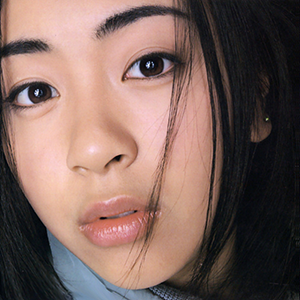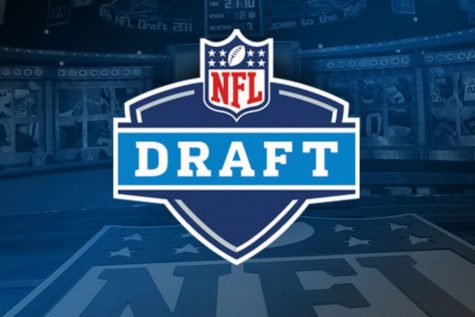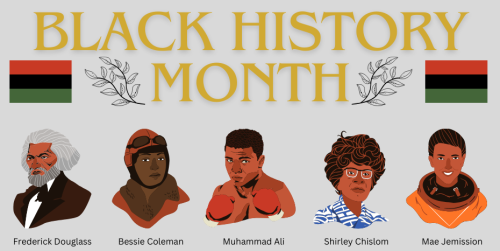High School Survival Guide: Cliques 101
Cliques at Long Reach High School
Photo of four different cliques and a girl trying to decide where she fits. Photo courtesy of https://olhscurrent.org/4476/opinion/cliques-the-good-and-the-bad/.
Cliques: Hollywood fantasy or the harsh highschool reality? Cliques are prevalent at all high schools including Long Reach and can have an impact on a students’ mental health.
According to KidsHealth.org, “Cliques are tight groups that usually have a strict code of membership and ways to act.” A “clique” is a term used to describe restricted friend groups, which can shape one’s overall high school experience.
The idea of cliques has been around for a long time and promoted by movies, TV shows, and books. The term “clique” became popular from classic Hollywood teen movies such as Mean Girls (2004), Heathers (1988), The Breakfast Club (1985), and more.
Most cliques have evolved from the classic ones we are familiar with, but the presence of them in high school remains the same. Kamaya Marks, a junior, says, “Back in the day it was your jocks, geeks, and cheerleaders.” She continues, “Now it has changed to more complex friend groups.”
Kylee Ramey, a junior, says, “cliques today are mostly about popularity contests through social media; it’s not about if you play a certain sport or act a certain way.”
Marks says, “If you have 15.7k followers on Instagram, you probably won’t be talking to people who have less than 10k because you want to be surrounded by friends who are popular, too.” That really only applies to those people that value popularity over true friendship.
Ramey says, “Some cliques even form by people that feel left out.” This implies that the difference between what makes a clique negative or positive are the values the members of them have.
However, the origin of these cliques can be confounding for those not a part of one.
High school junior, Nathan Howard, says, “Becoming part of what’s considered the “popular” clique can be harder because it’s based around how well-known you are in your school. Other cliques are easier to get into and less restricted.”
He says, “Some cliques don’t even consider themselves a clique, but other people can see that they are based on how they act.” Howard continues, “Groups of friends speak and hang out with other people outside of their group, but cliques do everything together.”
Many factors go into the formation of cliques. Ms. Li, a French teacher at Long Reach High School, says, “Cliques often develop around similar interests like friend groups.” But, the difference is that “cliques can form around shared insecurities, and that can lead to negative behavior.”
There are various reasons why giving a friend group the title of being a “clique” can be negative. Ms. Li says, “The term ‘clique’ has a negative connotation with me because when I see those cliques, they’re often bringing people down.”
Most cliques dissolve by the end of high school, but the negative effects of them do not. According to KidsHealth.org, “Those getting bullied by a clique can have depression, anxiety, and feel pressured to get rid of their individuality.”
Karen Abdelsayed, a freshman, says, “Some people in the extreme cliques feed off each other’s egos and take out their biggest insecurities on others.” She says, “Cliques can make or break your high school experience, especially if you’re not considered a part of one.”
“At Long Reach High School, there are cliques present, but not all of them are bad,” Howard says.
Indeed, being a part of a clique can be valuable in high school, especially as a freshman.
Abdelsayed says, “I feel like if I was a part of a clique at the start of high school, it would’ve been an easier transition from eighth grade to ninth.” She continues, “Knowing you already belong somewhere is kind of comforting.”
So, although the term “clique” tends to carry a negative connotation, most people still want to be a part of one.
Howard says, “The one thing that’s helped me navigate friend groups in high school is being able to have a mind of my own and becoming more confident in myself.”
Finding the people you “clique” with is what matters and will hopefully make your high school experience more positive.
Match the cliquey teen movie to its title!
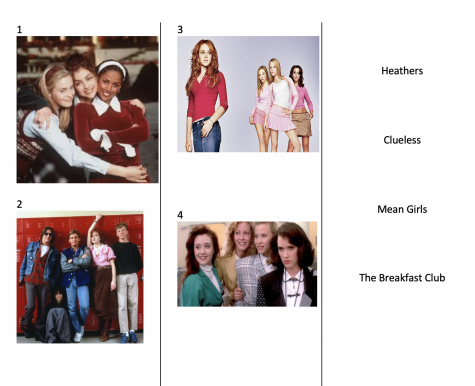
Answers: 1) Clueless, 2) The Breakfast Club, 3) Mean Girls, 4) Heathers
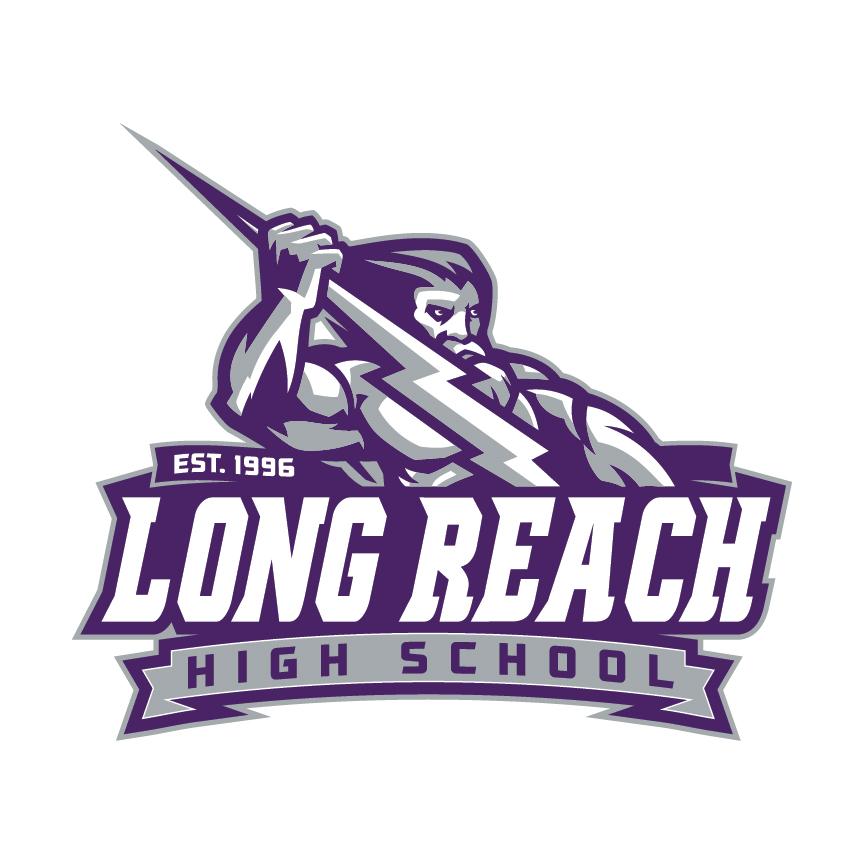
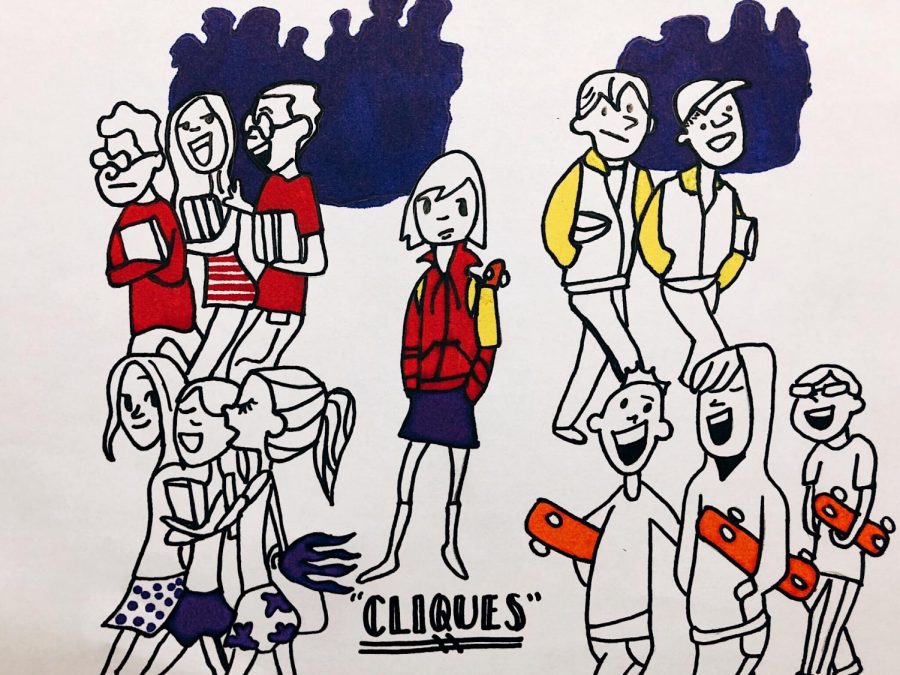
![Photo Courtesy of
A teen faces colorism at school and at home in 'Genesis Begins Again'
[Photograph]. (n.d.). NPR.https://www.npr.org/2019/01/31/690381040/a-teen-faces-colorism-at-school-and-at-home-in-genesis-begins-again
A complex-ion issue: Colorism [Photograph]. (n.d.). The Chronicle. https://hwchronicle.com/55860/features/a-complex-ion-issue-colorism/
The colorism issue [Photograph]. (n.d.). Issuu. https://issuu.com/overachievermagazine/docs/colourism
_issue_om](https://lrhslightningflash.com/wp-content/uploads/2021/06/Colorism-is-alive-475x380.jpg)
![Long Reach Boosters Club. (March 24, 2023 - 11:33pm). [Digital Image]. Long Reach Has Talent Show Spring 2023. Facebook, Retrieved April 17, 2023 from https://www.facebook.com/longreachboosters/posts/pfbid03kN5BKQj5TDefz1rtVZ5fTBBhjwA39UPPd8GctyMgFvY7B4RihH4rY4EqE7xPwikl.](https://lrhslightningflash.com/wp-content/uploads/2023/05/LR-Talent-Show-3-475x316.jpg)
